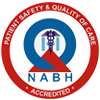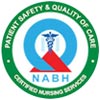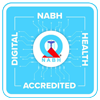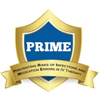
Radiology is also known as diagnostic imaging. The process involves multiples tests, which require projecting and picturing various parts of the body. Radiology is useful in several operations such as CT scan, MRI, X-ray, ultrasound, etc required during diagnosis. Radiology allows you to get better treatment for yourself by looking at your insides’ perfect real-time image.
- Conventional Radiography including special procedures
- Intervention Radiology & Cathlab procedures
- Bed side X-Rays and Ultra sound
- O.P.G & R.V.G
- DEXA scan
- Ultra Sound scanning with colour Doppler & Elastography
- Mammography with Stereotactic Biopsy.
- Whole body Multidetector spiral.C.T.
- Modality Guided Biopsy / F.N.A.C & Intervention procedures
- Whole body M.R.I
- Master Health Check-up (M.H.C)
- P.A.C.S
The Digital Radiography System is faster, more efficient and appropriate equipment for trauma care and the patients at large.
There is provision for 24 Hours Bed side digitized Radiography provided by dedicated Radiographers of this hospital.
Routine X-rays are done in the department for Outpatient, in patient and emergency patients. Other radiological specialized diagnostics services offered in the Department are contrast studies like:
- Barium Swallow, Barium meal follow through, Barium Enema, small bowel enema, loopogram, percutaneous transhepatic cholangiogram for the gastro intestinal tract.
- Intravenous urogram, retrograde urethrogram, micturiting urethrogram for genitourinary tract.
- Hysterosalpingogram
- Sialogram, Fistulogram and Sinogram
- Interventional procedures like transhepatic biliary drainage and percutaneous nephrostomy are done using image intensifier / cath lab.
The department is equipped with several high end Ultrasound scanners with colour Doppler, Elastography and 3D / 4D Imaging capability. In addition portable bedside ultrasound scanners are also used.
Elastography is the latest technology, used to assess whether a lesion is benign or malignant, especially in lesions of Breast, Liver, Prostate and Thyroid.
Elastography is also used to evaluate the liver for its fibrosis content / cirrhosis and is used for follow up of patients with Hepatitis B & C.
All routine diagnostic studies like USG abdomen, Pelvis, Thorax, and Antenatal, Small parts, Joints and extremities are also routinely evaluated.
In addition Colour Doppler studies of all arteries and veins, antenatal Doppler are regularly carried out in the department.
Interventional procedures like aspiration and drainage tube placement for abscess/ collections in abdomen and Thorax, Ultrasound guided FNAC / Biopsies of masses are performed regularly.
Mammography is the process of using low-energy-X-rays to examine the human breast and is used as a diagnostic and a screening tool. The goal of mammography is the early detection of breast cancer, typically through detection of characteristic masses and/or microcalcifications.
All conventional mammographic procedures are correlated with ultrasound study including Elastography by a lady technician and lady radiologist.
A stereotactic breast biopsy is performed when a mammogram shows a breast abnormality such as:
- Stereotactic breast biopsy is also performed when the patient or physician strongly prefers a non-surgical method of assessing a breast abnormality.
The department is equipped with state of the art 128 slice spiral cardiac Multi detector Computerized Tomography (MDCT).
Multiple detectors and faster speed of rotation makes the scanner capable of covering the whole body in seconds. CT Coronary angiogram is a very useful non invasive study of Coronary arteries. Because of increased speed, resolution and high end post processing software the equipment produces excellent images including those of the coronary arteries. Vascular imaging of Cerebral, Carotid & Vertebral, Pulmonary artery, Aorta, upper limb, lower limb, abdominal arteries are demonstrated with utmost clarity and precision.
The availability of latest upgraded software gives excellent 3D imaging like those with Multiplanar reconstruction, Maximum Intensity Projection (MIP), Volume Rendering Technique (VRT), Virtual Bronchoscopy and Virtual Colonoscopy.
CT scanning of Brain, Orbit, PNS, Neck, Thorax, Abdomen, Spine, Extremities, high resolutions CT of lung, Temporal bone, Myelography, Bones & Joints are routinely done.
The CT scanner is also used for guided fine needle aspiration cytology and biopsies, from masses in the Thorax, Abdomen, Spine & extremities. CT guided Nerve blocks, aspiration and drainage tube placement for abscess / collections are regularly done as well.
“https://www.psghospitals.com/wp-content/uploads/2020/06/radiology-group-photo.jpg”
All images are stored in the P.A.C.S. & the images can be viewed any time by all the departments and Wards.
MRI is a non invasive imaging that helps Physicians diagnose and treat diseases. MR imaging uses a powerful magnetic field, radio frequency pulses and advanced computing to produce detailed images of organs, soft tissues, bone and virtually all other internal body structures.
Our 1.5 Tesla MRI is used to find problems such as tumours, bleeding, injury, blood vessel diseases, or infection. MRI also may be done to provide more information about a problem seen on an X-ray, ultrasound scan or CT scan. Contrast material like Gadolinium is used during MRI to show abnormal tissue more clearly.
The images are studied by skilled Radiologists and then printed in film or copied to CD. Detailed MR images allow physicians to better evaluate parts of the body and certain diseases that may not be assessed adequately with other imaging methods such as X-ray, ultrasound or computed tomography.
MRI does not use ionizing radiation like the X-rays. All images are saved in the P.A.C.S.
Diagnostic angiograms, venogram and vascular & nonvascular interventional procedures are performed regularly. Procedures undertaken are: Diagnostic Angiograms ,Bronchial artery embolization, Uterine artery embolization for fibroids and post partum bleed, Pre-operative tumor embolization, Trans-arterial chemo-embolization for liver tumors, GI and renal bleed embolization, Peripheral vascular malformations endovascular and percutaneous therapy, Peripheral arterial PTA and stenting, Carotid PTA and stenting, Renal arterial PTA and stenting, Percutaneous biliary interventions, Percutaneous renal interventions, Fallopian tube recanalization, IVC and Hepatic vein interventions.
Dual Energy X-ray Absorptiometry scanner’ (DEXA) is part of the diagnostic package in master health check-up (MHC). It is the most commonly used test for measuring bone mineral density. It is one of the most accurate ways to diagnose Osteopenia or Osteoporosis.
An Orthopantomogram (OPG) is a panoramic scanning dental X-ray of the upper and lower jaw. It shows a two-dimensional view of a half-circle from ear to ear. An OPG relies on tomography i.e. images of specific radiographic planes are taken to make up the larger panoramic image.
One major breakthrough is the use of digital x-rays. Similar to digital photography, digital x-rays do not use conventional film. It is no longer necessary to use the sharp plastic film used by traditional x-rays. New digital sensors are ergonomically designed to better fit the patient’s mouth. Not only is it more comfortable, its also much safer as well. Digital x-rays emit 90% less energy and achieve better results.
The Radiology & Imaging service plays a vital role in a quality master health check-up programme which is undertaken by this hospital on a daily basis. The X Ray machine, ultra sound scanner, Mammography and the Dexa scanner exclusively made available to clients for faster disposal and convenience.
The department runs Post Graduate programme MD (Radio Diagnosis) and is an integral part of the M.B.B.S. curriculum. It also under takes radiographers training programme leading to award of Degree and Diploma.
The Academic Curriculum besides regular class room teaching, seminars, case discussions and journal clubs and includes interdepartmental meetings with other departments for Post Graduates and Faculty.
The faculty, students and staff are encouraged to participate actively in the Radiological / Technical Society Meets (Local Branch, State and National), which are mostly funded by the Management.
Specialist Doctors
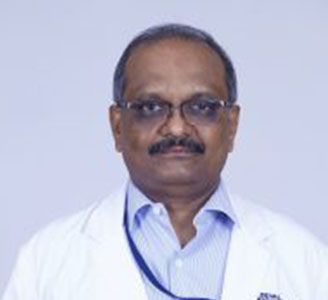
DEVANAND B Department of Radiology, PSG Hospitals
| Specialty | Radiology |
| Experience | 33 Years |
| Qualification | MBBS, MD (Radio Diagnosis) |
| Designation | Professor/Senior Consultant |
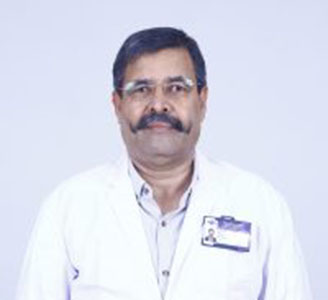
ELANGO N Department of Radiology, PSG Hospitals
| Specialty | Radiology |
| Experience | 44 Years |
| Qualification | MBBS, MD, DMRD |
| Designation | Professor/Senior Consultant |
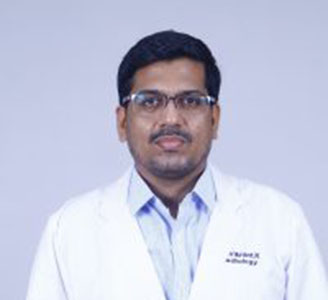
VIKRANT K Department of Radiology, PSG Hospitals
| Specialty | Radiology |
| Experience | 19 Years |
| Qualification | MD Radiodiagnosis |
| Designation | Associate Professor/Consultant |
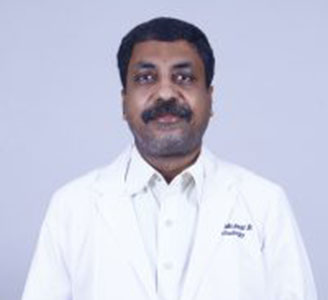
RAJA KUMAR R Department of Radiology, PSG Hospitals
| Specialty | Radiology |
| Experience | 31 Years |
| Qualification | MBBS, DMRD, DNB |
| Designation | Associate Professor/Consultant |
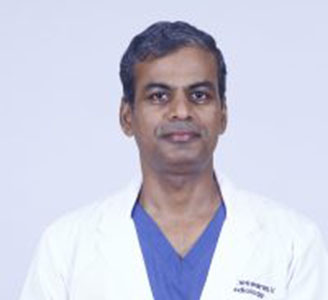
Maheswaran V Department of Radiology, PSG Hospitals
| Specialty | Radiology |
| Experience | 14 Years |
| Qualification | MBBS, DNB(Radiology), PDCC(Interventional Vascular and Neuroradiology) |
| Designation | Associate Professor |
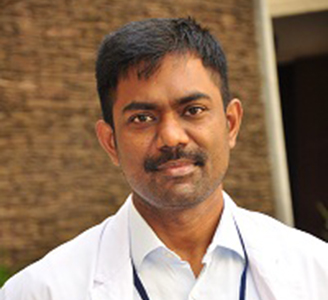
Thilagarajan S Department of Radiology, PSG Hospitals
| Specialty | Radiology |
| Experience | 3 Years |
| Qualification | MD |
| Designation | Assistant Professor |
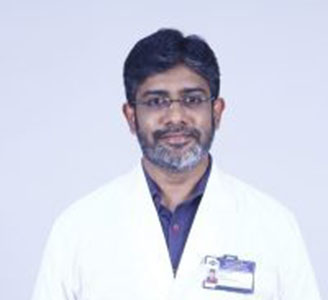
Jayaprakash Department of Radiology, PSG Hospitals
| Specialty | Radiology |
| Experience | 13 Years |
| Designation | Associate Professor |
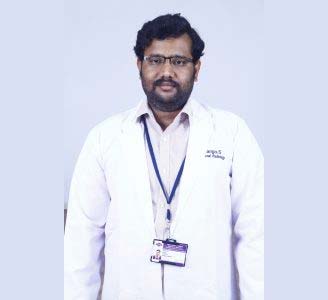
Dr.Elango S Department of Radiology, PSG Hospitals
| Specialty | INTER.RADIOLOGY |
| Experience | 5 Years |
| Qualification | MD,DNB,FNVIR |
| Designation | Assistant Professor/Consultant |
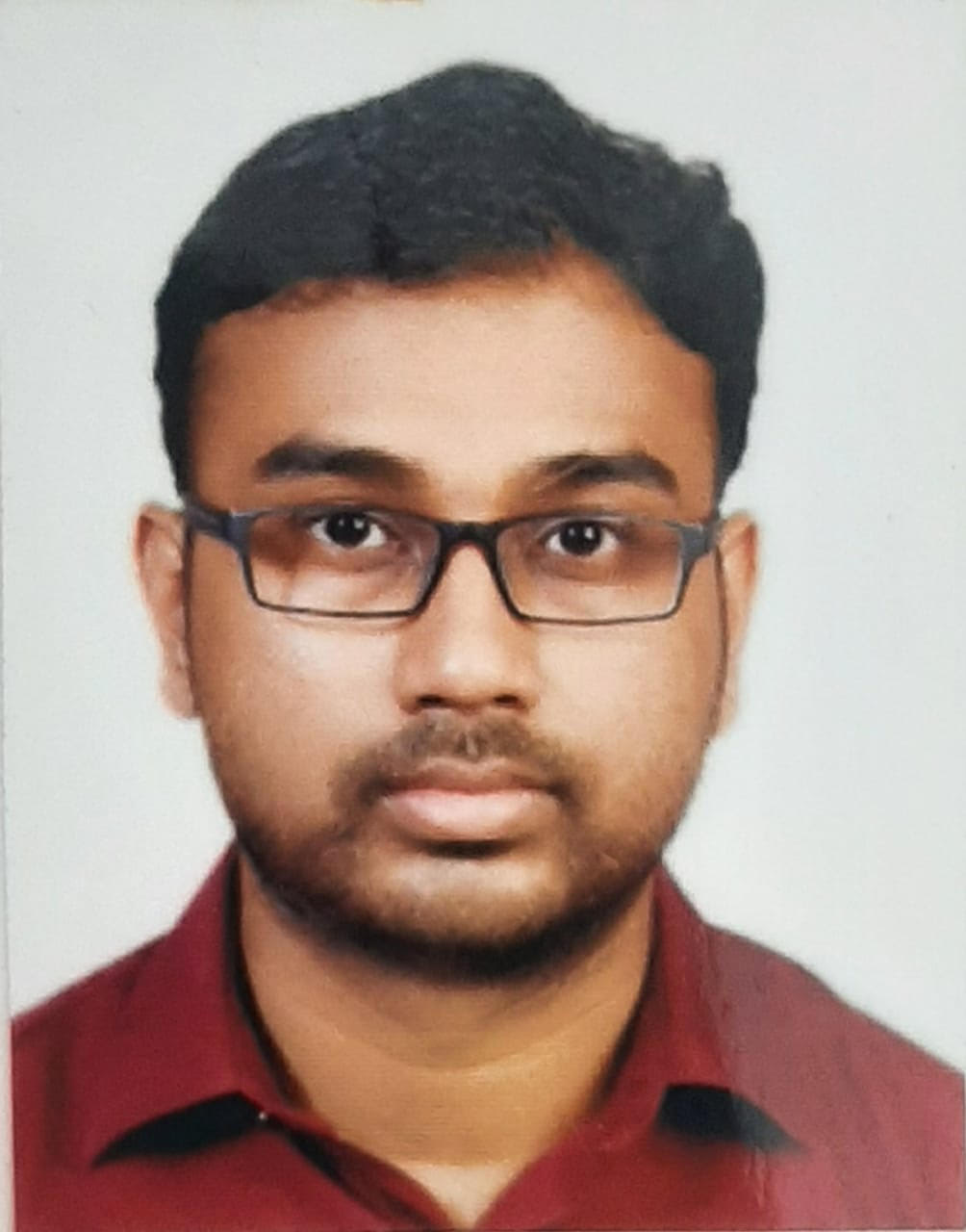
Arun Prasad R Department of Radiology, PSG Hospitals
| Specialty | Radiology |
| Experience | 3 Years |
| Qualification | MBBS,DMRD,DNB |
| Designation | Assistant Professor |
Request an Appointment
-

Share with us
Click Here -

Organ Transplantation
Click Here
Copyrights © 2025 PSG Hospitals. All Rights Reserved.


